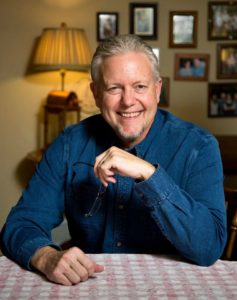What deserves to be called “miraculous?”

Not just any old event.
Watch our Truth in Two to find out what a miracle is and why the cultural appropriation of Hebraic-Christian words does not come close to explaining the reality of a miracle.

Subscribe to MarkEckel.com (here). Find the MarkEckel.com YouTube Channel (here). Mark is President of The Comenius Institute (website). Dr. Eckel spends time with Christian young people in public university (1 minute video), teaching at Indiana University Purdue University at Indianapolis, and interprets culture from a Christian vantage point (1 minute video). Consider becoming a Comenius patron (here).
Picture Credit: Luke Renoe, Snappy Goat
FULL TEXT
When my children were young, I would retell Bible stories. Among their favorites was the account of the man born blind in John 9. Jesus, seeing a blind beggar, anoints the man’s eyes with spit and dirt, telling him to wash in the pool of Siloam. Miraculously, the man could then see. Townspeople take notice. Asked how he could now see, the former blind man recounts the event. When asked for details, the now seeing man replies, “I don’t know.” The account reaches the ears of the religious leaders of the day. The Pharisees have the sighted man brought before them. The same story is told. Instead of focusing on the fact that the man could now see, the Pharisees argue about the One who did the miracle, Jesus.
So, the Pharisees move on in their interrogation of Jesus’ miracle to the former blind man’s parents. Afraid of losing their standing in the religious community – fearful of the Pharisees kicking them out, being ostracized by their neighbors – the parents say, “Sure, he is our son who once was blind. But don’t ask us, ask him; he’s a man who can speak for himself.”
So, the religious leaders, consumed by their hatred of Jesus, try to get leverage against the Son of God by bringing the former blind man in for questioning a second time. The Pharisees berate the man, ordering him to tell his story again. The now seeing man repeats the line, “I don’t know.” But this time, he offers the punch line that my children waited for, the line that any blind or sighted person would know, if they cared to know. “Once I was blind, but now, I see.”
Now our culture likes to appropriate the word “miraculous” to something simply out of the ordinary. A miracle is not some, “Oh I don’t understand it but isn’t it cool” kind of event. Jesus reordering creation as it should be – literally changing a man’s sightedness – now that’s a miracle.
There is much I don’t know in this life. But I know this. Once I was blind, but now I see. And Jesus did that. For Truth in Two, this is Dr. Mark Eckel, president of the Comenius Institute, personally seeking truth with new eyes.



















